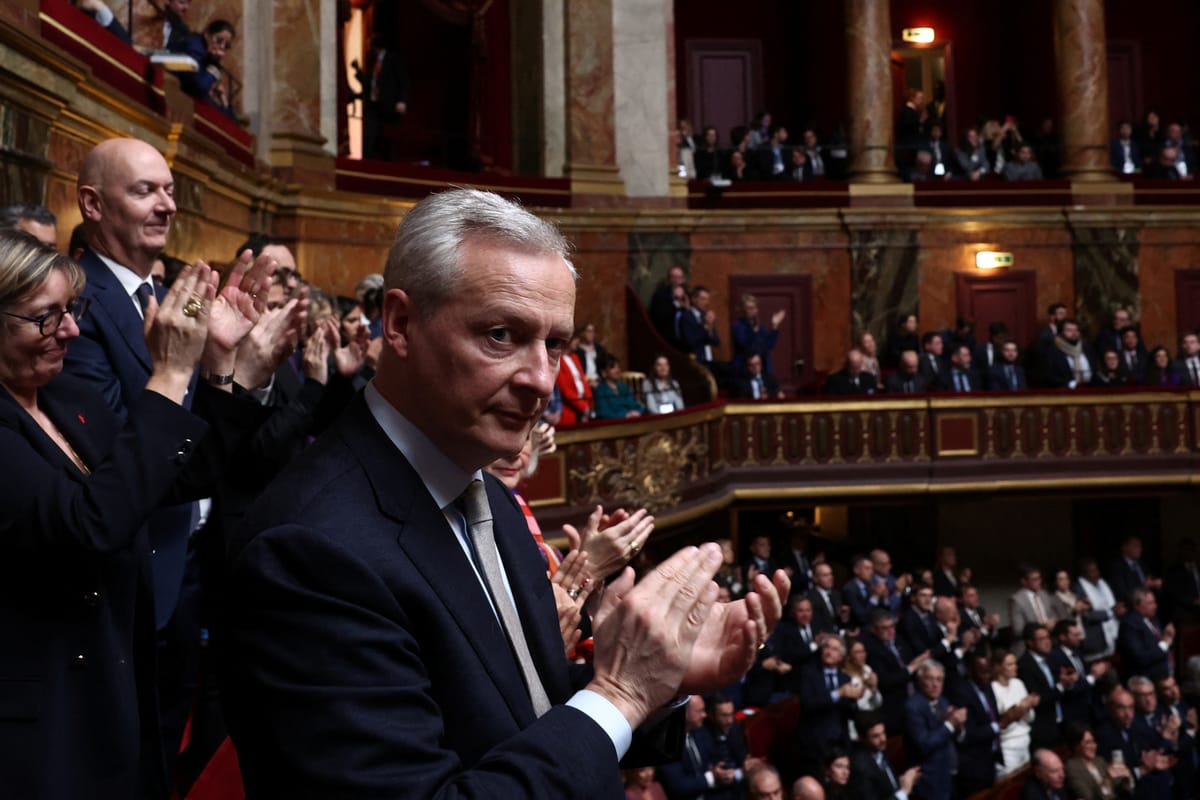France becomes the first nation to include abortion rights in its constitution
Abortion laws have been a global topic of debate for decades.

A few minutes every morning is all you need.
Stay up to date on the world's Headlines and Human Stories. It's fun, it's factual, it's fluff-free.
The backstory: Abortion laws have been a global topic of debate for decades. In countries like Canada and the US, it's legal under certain circumstances. In France, abortion was legalized back in 1975 with the Veil Law, named after Simone Veil, a key advocate for women's rights. This law allows abortion on request during the first trimester and under specific conditions later in the pregnancy. It's seen as a fundamental right within reproductive health and women's rights, even though it's not explicitly stated in the constitution.
Over the years, France has updated its laws nine times to improve access to abortion services. Now, abortions are state-funded for up to 14 weeks of pregnancy, and minors can get one without parental consent. Online anti-abortion speech is also banned. But not everyone agrees with these laws. The Catholic Church, for example, opposes abortion.
More recently: In 2022, the US Supreme Court overturned Roe v. Wade, a decision that had protected abortion rights in the country for almost 50 years. This opened up the option for states to make their own laws regarding abortion.
Last month, the Alabama Supreme Court ruled that frozen embryos can be considered children under state law, which ramped up the debate, with many groups halting their in-vitro fertilization services in the state.
The development: France has now become the first country to incorporate the right to abortion into its constitution. Lawmakers changed the 1958 constitution, marking the 25th amendment to the Fifth Republic's founding document and the first since 2008. The amendment was widely supported by both houses of the French Parliament, with 780 votes in favor and only 72 against.
President Emmanuel Macron cheered the decision, calling it a moment of "French pride" with a "universal message." Meanwhile, the move faced criticism from anti-abortion groups and the Vatican. For instance, the Vatican's Pontifical Academy for Life argued that in today's age of universal human rights, there shouldn't be a "right" to take human life. French bishops also reiterated the church's opposition to abortion before the vote.
After the vote, the Eiffel Tower lit up with the message "My Body, My Choice" to celebrate the landmark decision.
Key comments:
"Above all, we're sending a message to all women: your body belongs to you," said France's Prime Minister Gabriel Attal.
"This right (to abortion) has retreated in the United States. And so nothing authorized us to think that France was exempt from this risk," said Laura Slimani from the Fondation des Femmes rights group. "There's a lot of emotion, as a feminist activist, also as a woman."
"We now have irrefutable proof that no democracy, not even the largest of them all, is immune," said French Justice Minister Eric Dupond-Moretti, referring to the US decision to overturn Roe v. Wade.
"There can be no 'right' to take a human life," said the Vatican institution in a statement, echoing concerns already raised by French Catholic bishops.




Comments ()